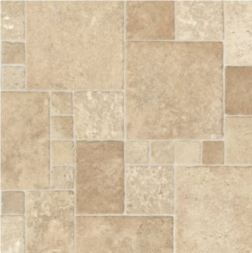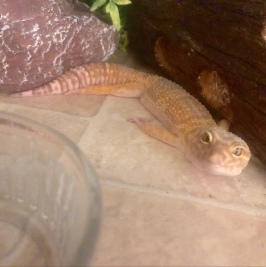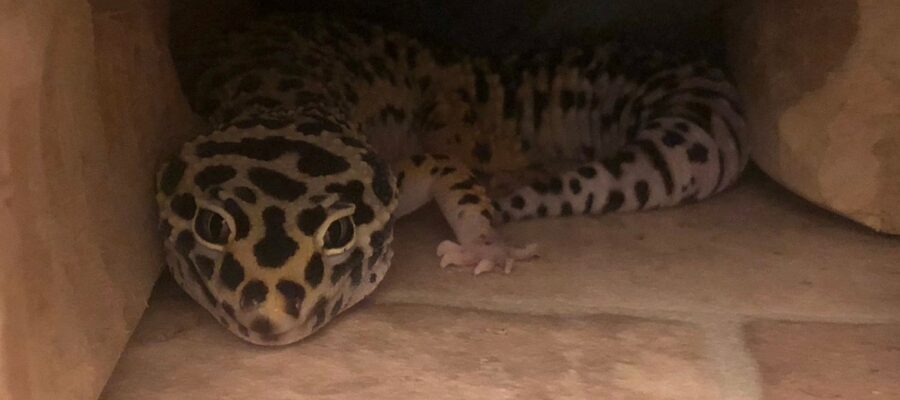I have previously written a review of some types of substrate for leopard geckos, however I feel as though I should do a more in-depth post about the substrate I use, which is vinyl/ lino/ linoleum.
Before I bought my leopard geckos, I found that one of the most confusing and stressful parts of planning their enclosure was knowing which substrate to buy.
We are now selling vinyl substrate: click here to purchase some
I knew that loose substrate (such as sand) can cause impaction when ingested, which is fatal to leopard geckos, but it was the thing that was most commonly sold. Even the breeder I bought from, and also the reptile shop around the corner tried to make me buy calci-sand.
It is no wonder they push this product due to its high profit margins, and also because it will ensure return customers every time the sand needs to be replaced. However it can be fatal to leopard geckos, and isn’t worth the risk.
Please read my post: Does sand/ loose substrate cause impaction in leopard geckos?
 After a lot of research I decided to buy vinyl, and purchased some from a flooring shop online. There was so much choice in terms of thickness, design, and adhesion, so I chose a medium-thickness one, with a nice stone pattern, and importantly NO adhesive on the bottom (the fumes can be harmful to your geckos).
After a lot of research I decided to buy vinyl, and purchased some from a flooring shop online. There was so much choice in terms of thickness, design, and adhesion, so I chose a medium-thickness one, with a nice stone pattern, and importantly NO adhesive on the bottom (the fumes can be harmful to your geckos).
Unfortunately, you often have to buy a minimum amount, so I ended up with way more than I actually needed, but when it arrived I easily managed to cut it to the size I needed, and place it in the vivarium (with the thermostat sensor placed on top of the vinyl).
Straight away I could feel it begin to conduct the heat of the heat mat, so it would provide a nice, warm flooring for them to lie on, which mimics their natural habitat (contrary to what a lot of people believe, leopard geckos do not live in sand in the wild- they live in rocky, mountainous areas).
Most importantly, there is no way the geckos could ingest the vinyl, and there’s nothing that they could get their teeth or toes caught in, so I felt confident that this was a safe choice for them.
I have been using this for over a year now, and I’m still so happy with it. It doesn’t wear out, so I’m not needing to constantly replace it, and it’s really easy to wipe clean with a damp kitchen towel or spray with vivarium cleaner.
See post on: The lazy way to spot-clean your leopard gecko’s vivarium
 Finally, it looks really good! There are cheaper alternatives to using vinyl, such as kitchen towels, however I don’t think these look as good, but I just love the look of my vinyl. It’s available in all sorts of colours and patterns so you can get really creative with the look of your vivarium.
Finally, it looks really good! There are cheaper alternatives to using vinyl, such as kitchen towels, however I don’t think these look as good, but I just love the look of my vinyl. It’s available in all sorts of colours and patterns so you can get really creative with the look of your vivarium.
My one complaint is that it doesn’t absorb the smell of leopard gecko droppings as well as other substrate claims to do, however as long as you clean the droppings regularly this shouldn’t be a problem.
Please also see my post on: Do Leopard Geckos Smell?
Overall I am so happy I went with this substrate, but other close contenders for me to use would have been paper towels or slate, which also have similar benefits.
We are now selling vinyl substrate: click here to purchase some
Get Your Free Leopard Gecko Care Checklist!
Are you ready to give your leopard gecko the best care possible? Download our FREE PDF e-book featuring a comprehensive care checklist!
This handy guide covers everything from habitat setup to feeding and health tips, ensuring your gecko thrives.
👉 Download your checklist now!




